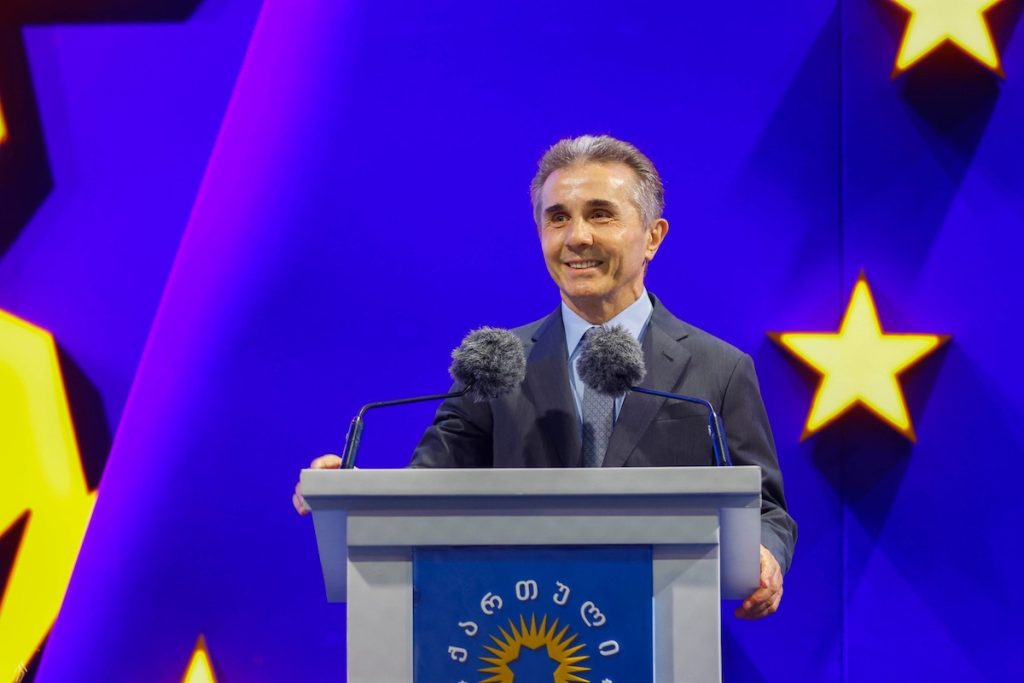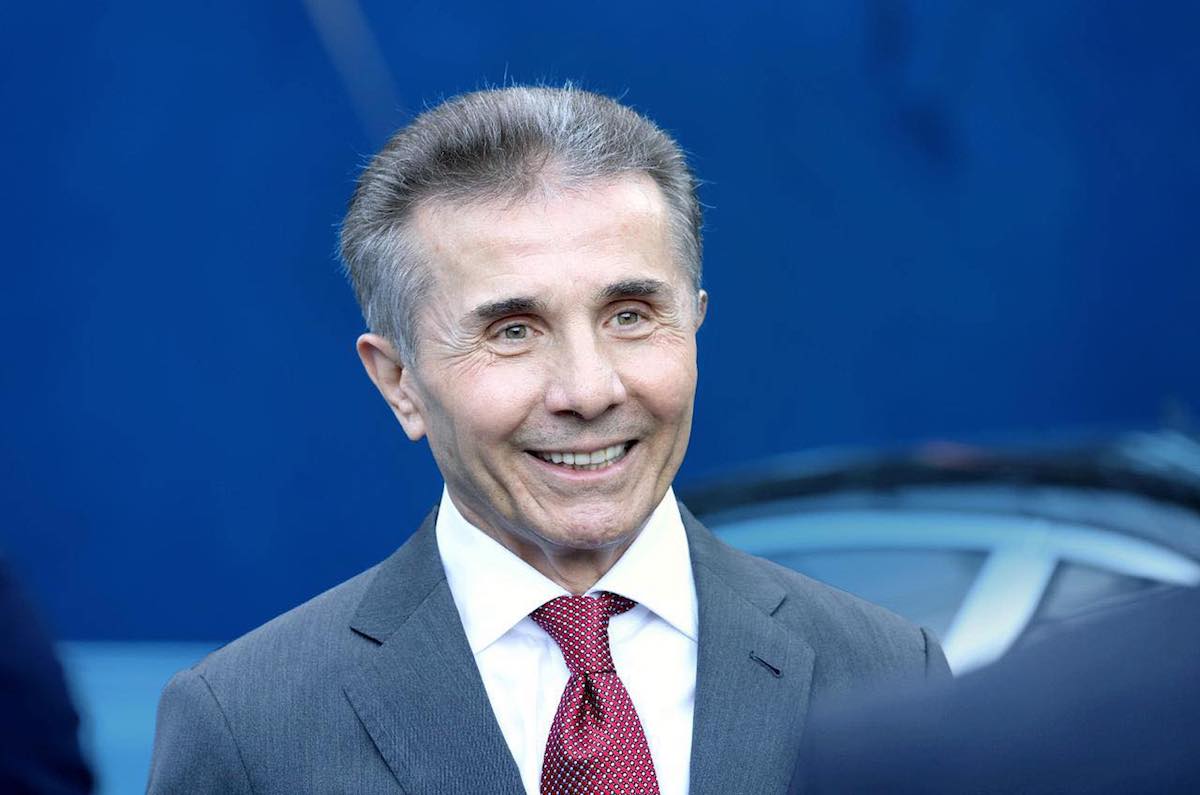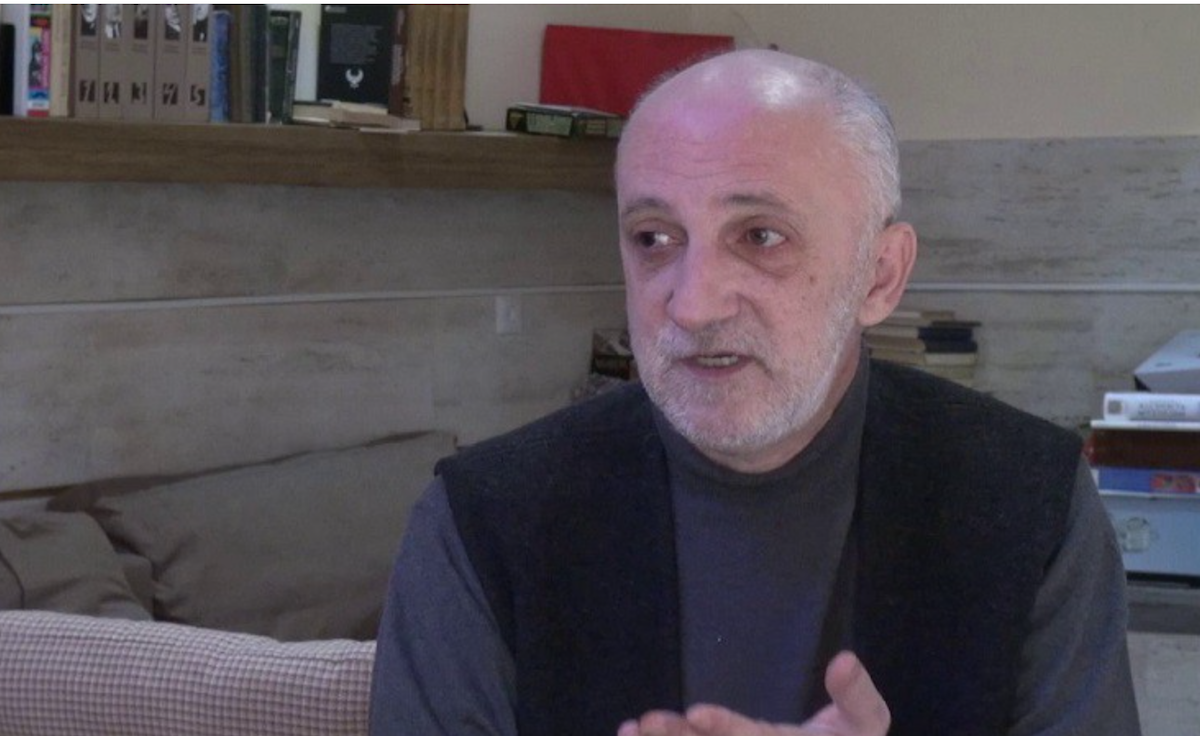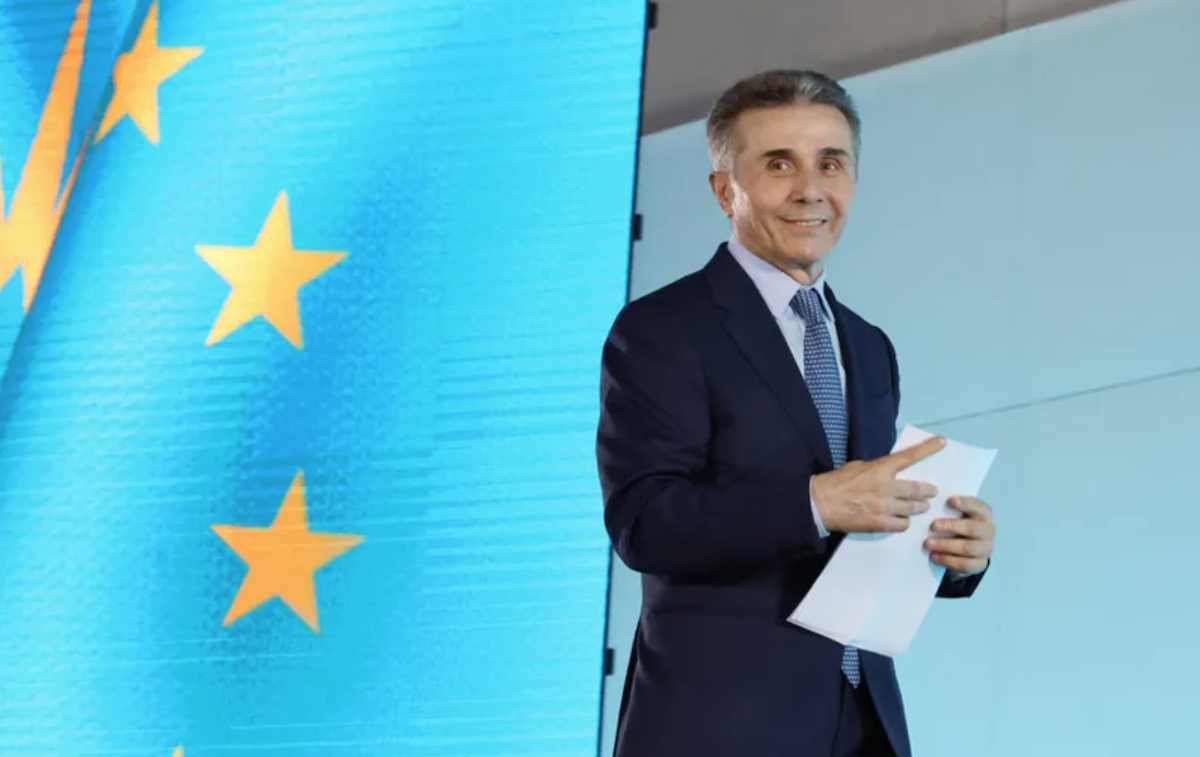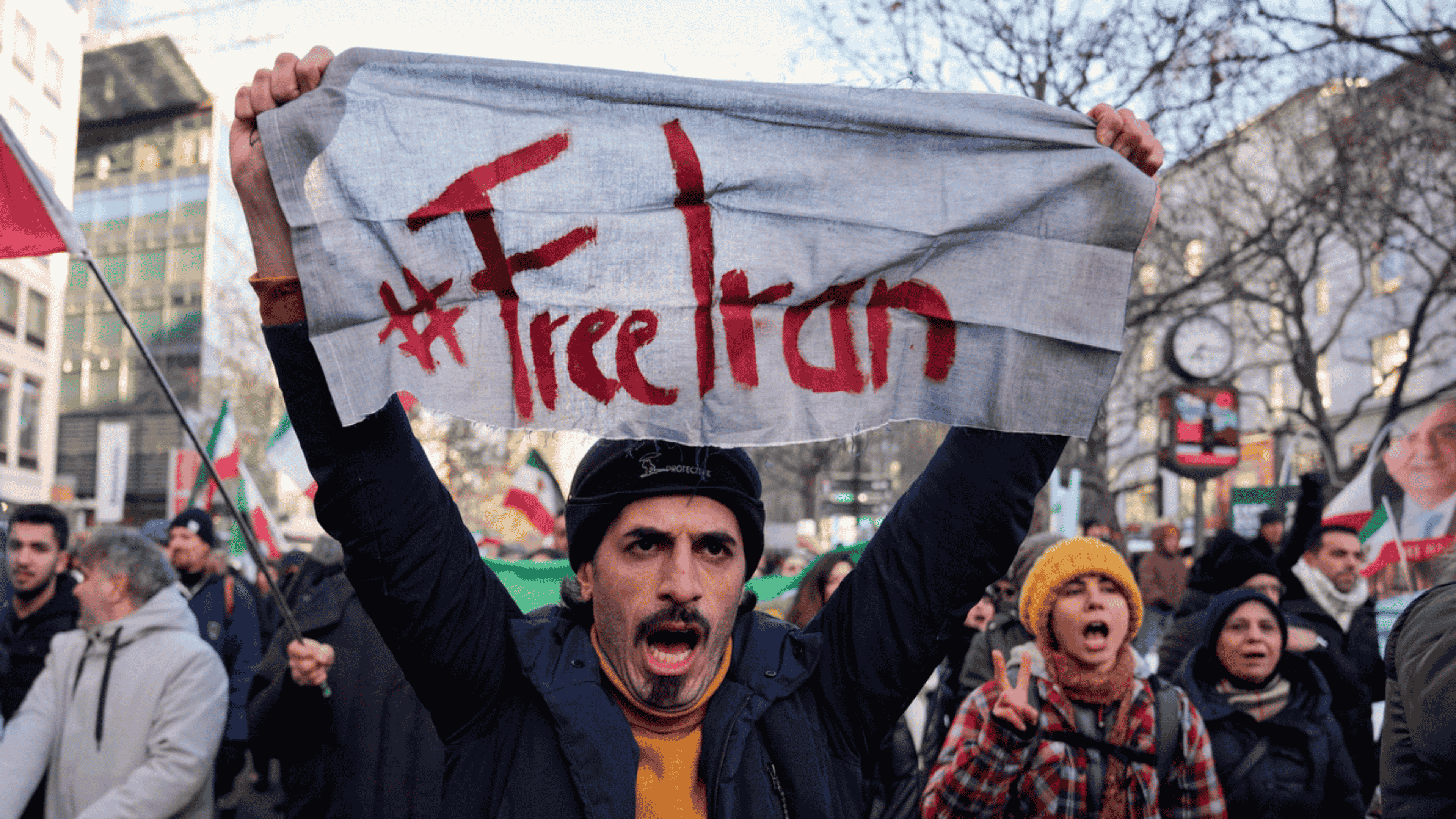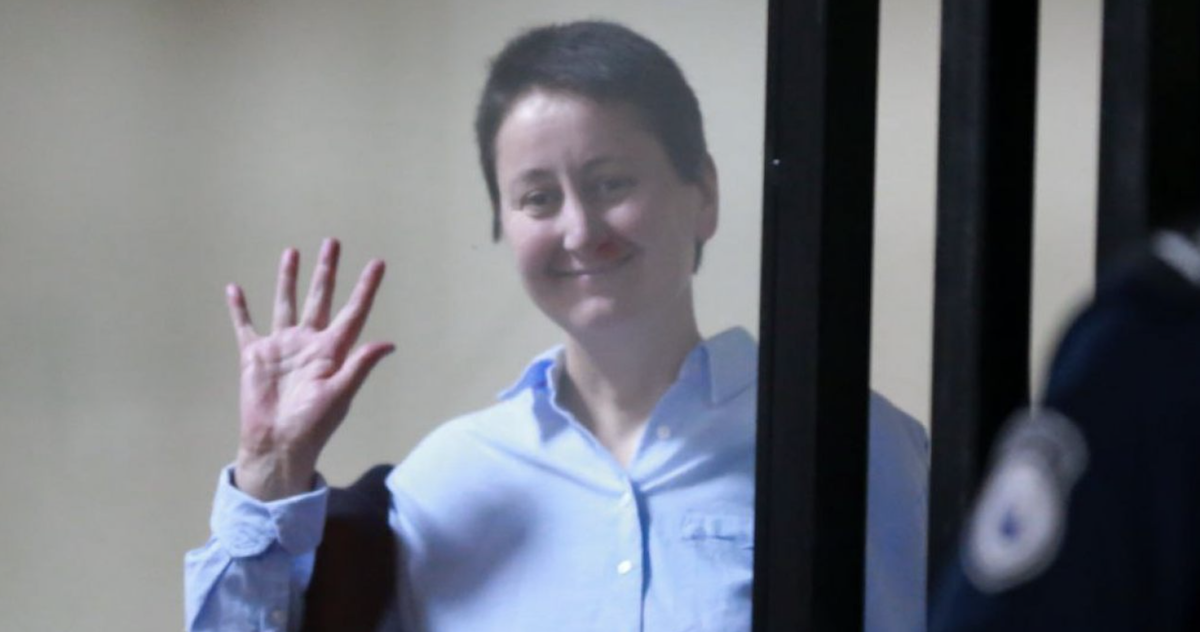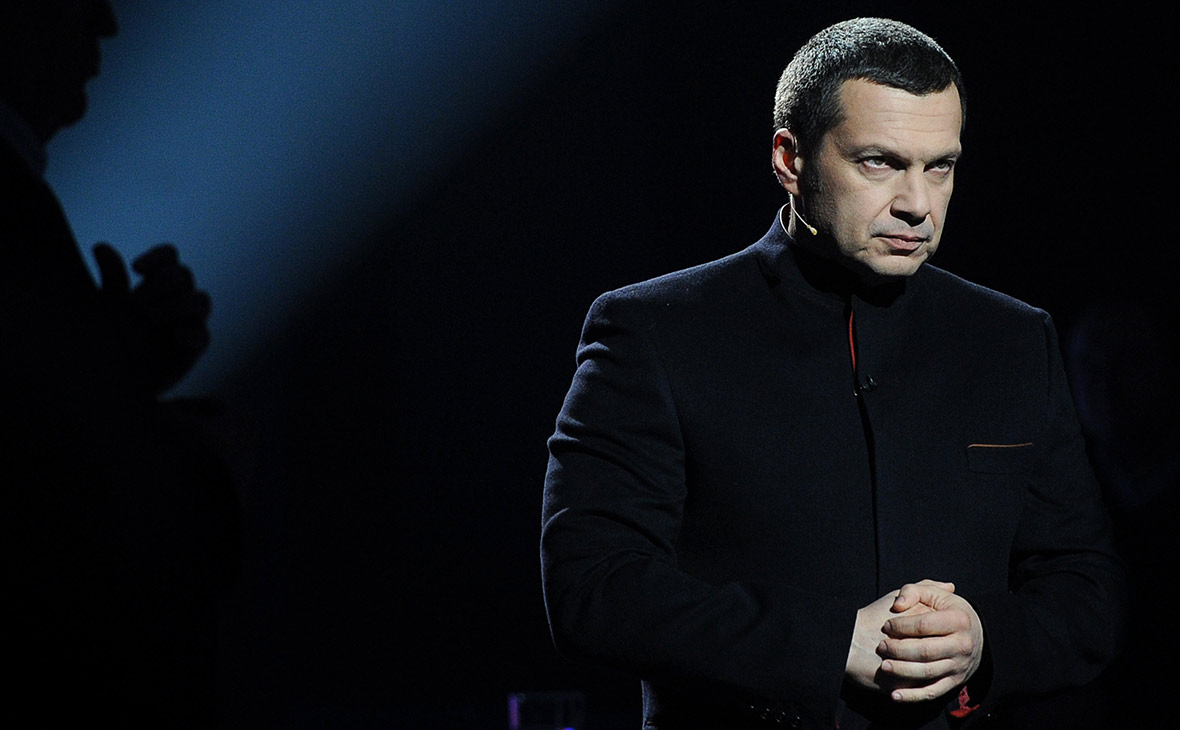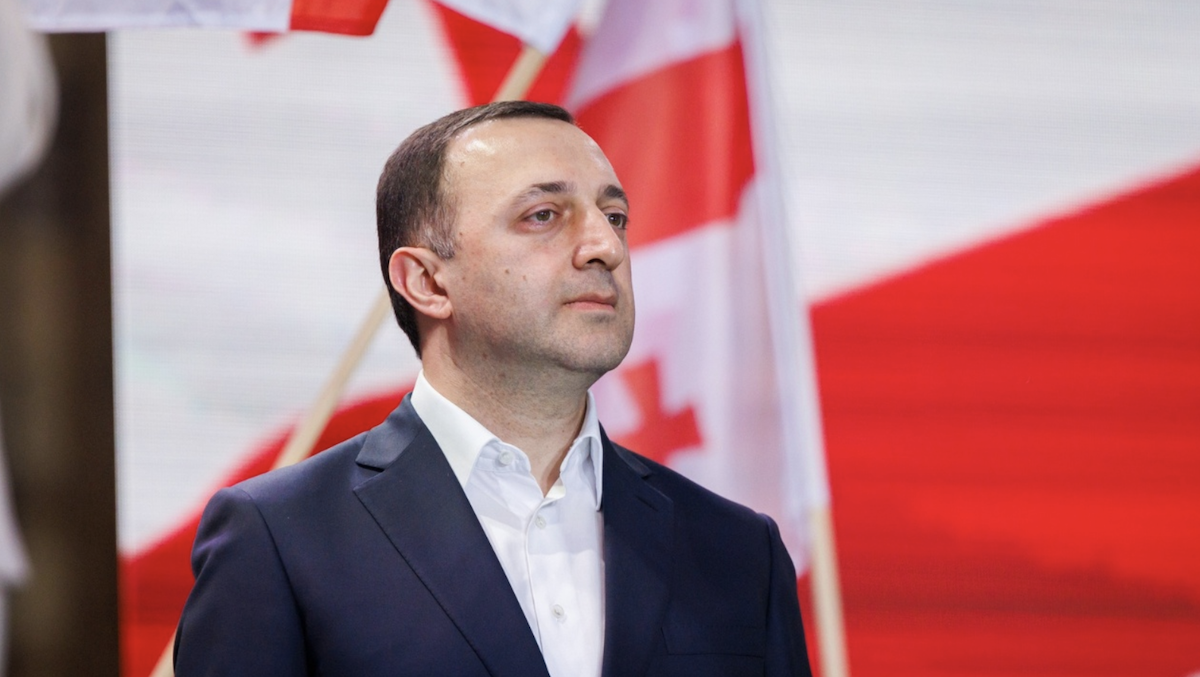Georgian leader Bidzina Ivanishvili says he "blames the 'party of global war' for financial blackmail, not the U.S. and EU
The Party of Global War and Ivanishvili
The honorary chairman of the ruling party, Georgian Dream, Bidzina Ivanishvili, stated that he blames the so-called “party of global war” for “financial blackmail,” not the U.S. and the European Union. This was mentioned in Ivanishvili’s statement, which he issued in response to a post by the U.S. Embassy on Facebook.
The U.S. Embassy in Georgia responded to statements from leaders of the Georgian Dream party regarding the Credit Suisse case, highlighting on a map where to find Ivanishvili’s millions. In a post published by the embassy, it was noted that “Ivanishvili knows that the money related to Credit Suisse is held by courts in Bermuda and Singapore, not in America.“
On September 30, Tbilisi Mayor Kakha Kaladze, when asked by a journalist about possible financial sanctions, stated that “there is no justice in the modern world.”
As an example, Kaladze mentioned Bidzina Ivanishvili’s case against Credit Suisse.
What did Bidzina Ivanishvili say?
“First of all, it should be noted that the embassy cannot name a single statement made by me or any other leader of the ‘Georgian Dream’ in which we accused the U.S. or the European Union of financial blackmail.
When we spoke about theft from a bank account and financial blackmail, we always clarified that the blackmail comes not from the U.S. or the European Union, but from those forces we refer to as the ‘party of global war,'” the statement reads.
According to Ivanishvili, the so-called ‘party of global war,’ whose existence is only confirmed by Georgian Dream and its leaders, and whose true nature remains unknown, influences politicians and bureaucrats in both the U.S. and the European Union:
“This is why, until the financial blackmail is resolved, I refuse to meet with American politicians and bureaucrats, as the likelihood of the ‘party of global war’ influencing each of them is extremely high.”
According to Ivanishvili, he has formally informed his American colleagues of his position in writing and is willing to publicly discuss the content of the letter if the embassy requests it.
“Additionally, my lawyers have repeatedly disclosed detailed information about the financial restrictions imposed on me since the onset of the war in Ukraine, and if necessary, I am prepared to instruct them to publish updated information on this matter.
I would also like to remind you that we did not raise the topics of oligarchic influence, informal governance, the ‘deep state,’ and the party of war; these issues have become major themes in the current presidential campaign in the U.S.
Candidates such as Donald Trump, Robert F. Kennedy Jr., Vivek Ramaswamy, and others are actively discussing these topics. The ‘party of global war’ is the force that, acting against Georgia’s national interests, is attempting to use the U.S. and the EU as cover, presenting the situation as if Georgia is opposing not them, but the U.S. and the EU,” the statement reads.
The dispute between Ivanishvili and Credit Suisse
The dispute between Ivanishvili and Credit Suisse began in 2011 when Ivanishvili was a client of the bank’s private banking services.
During this time, it became known that one of the bank’s managers, Patrice Lescoudron, was involved in fraudulent activities, embezzling money from confidential accounts, including Ivanishvili’s and that of Russian oligarch and business partner Vitaly Malkin.
The Swiss regulator, Finma, published a report stating that Credit Suisse failed to take appropriate action despite numerous warnings and suspicious circumstances.
Ivanishvili accused Credit Suisse of failing to protect his investments, demanding $800 million from the bank, claiming that this was the amount he lost due to the actions of former bank manager Patrice Lescoudron.
Credit Suisse’s trust division stated that Ivanishvili’s claim was exaggerated and sought to dismiss his lawsuit in court.
Lescoudron was convicted of fraud in 2018 and spent two years in pre-trial detention before his trial. He was released in 2019, but in July 2020, Lescoudron took his own life. Prior to this, he admitted to covering up the losses of affected clients caused by his poor investment decisions during the 2008 financial crisis by secretly transferring money from other client accounts.
In March 2022, The Financial Times reported that a Bermudian court ruled in favor of Bidzina Ivanishvili in his legal dispute against Credit Suisse, awarding him over $500 million (with Bloomberg reporting the amount as $607 million).
The next phase of the conflict between Ivanishvili and Credit Suisse began after Russia’s invasion of Ukraine. Ivanishvili initiated several lawsuits against the bank, one of which concerned delays in transactions that resulted in financial losses for the businessman. There were reports that the bank had frozen his account, which held £2.7 billion, citing suspicions that the funds may have Russian origins.
In September 2022, Ivanishvili stated in a Singapore court that Credit Suisse failed to take the necessary measures, resulting in a loss of $1.27 billion.
In February 2023, Bloomberg reported that Credit Suisse Group AG paid billionaire Bidzina Ivanishvili $210 million as part of a protracted legal dispute.
